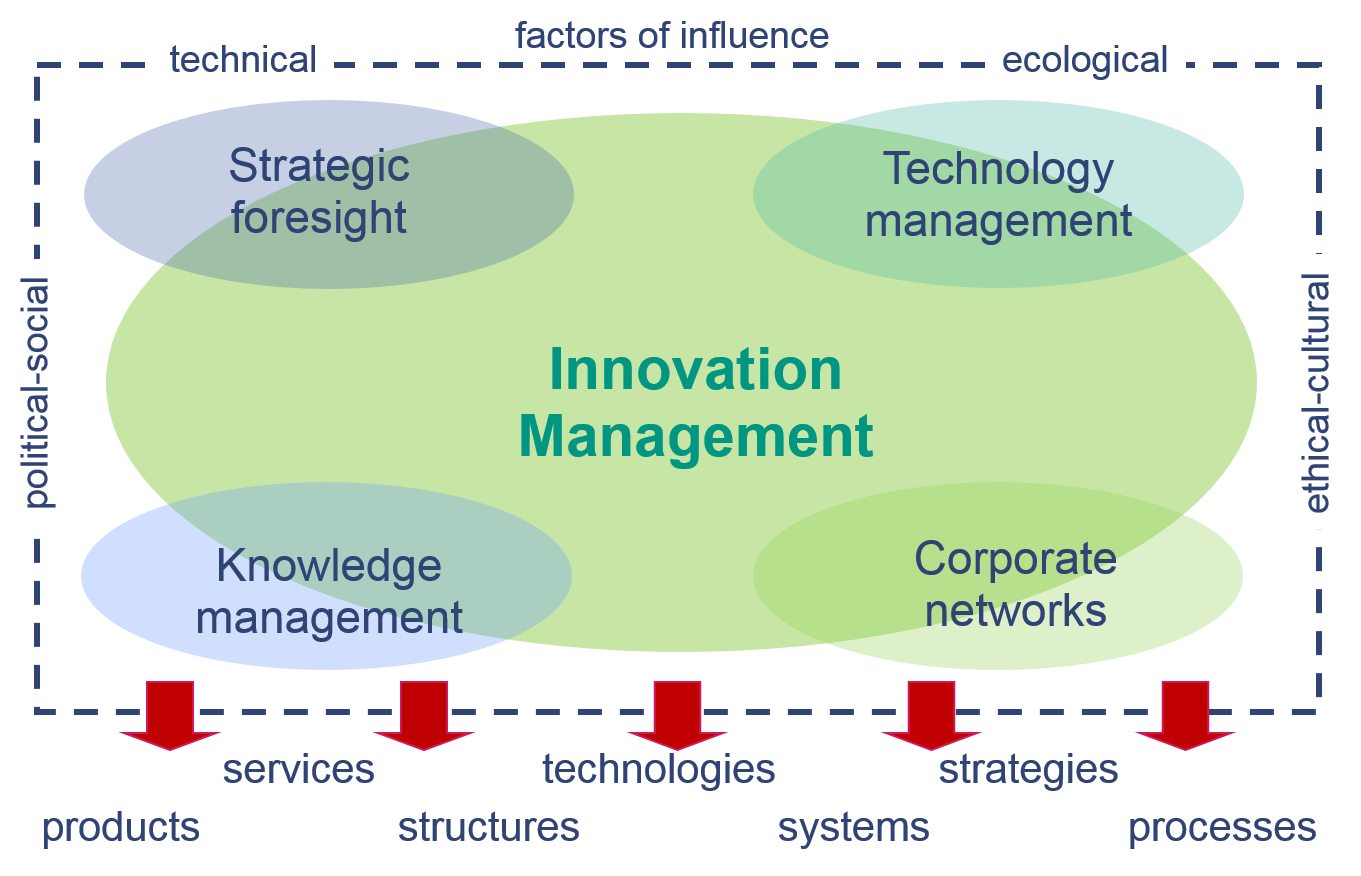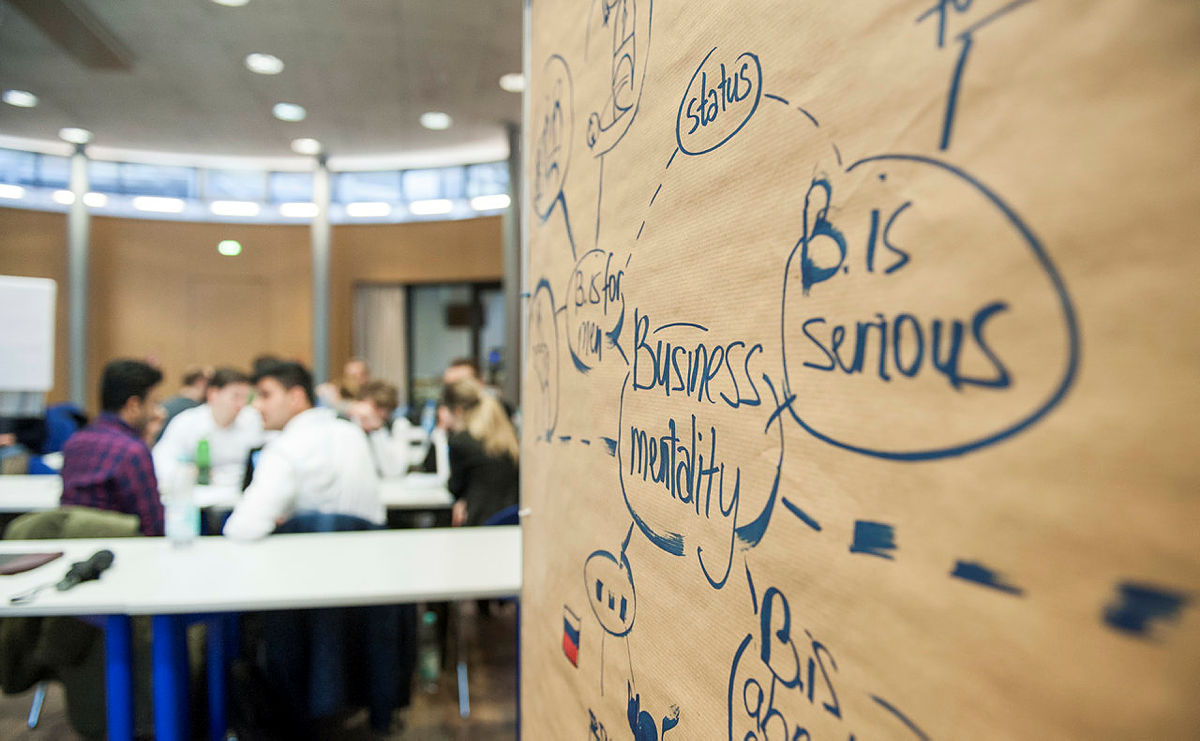Research
The Chair for Innovation and Technology Management (iTM) is active at the intersection of science and corporate practice. Accordingly, its research activities aim at designing innovation management and the innovation process in a practical way. The aspiration is to conduct scientific research on questions that are relevant now and in the future. On the one hand, this advances knowledge in the Scientific Community. On the other hand, industrial and service companies profit from this by deriving science-based design and action recommendations from the findings. The dialog between academia and industry is decisive for identifying relevant topics and for putting scientific findings into practice. The Chair for Innovation Management’s goal is to foster and advance this dialog.
Innovation management is understood as concerning itself with the sustainable design of processes in order to ensure companies’ long-term existence in a dynamic environment. Innovation is understood as novelty with regard to products, services, technologies, processes, structures, strategies and social systems. The research based on this focuses on strategic, organizational and methodological issues. Interactive innovation research results from this that explores the recursive relationships between changes in the environment and creative activities.
In this context, the Chair for Innovation and Technology Management focuses on strategic foresight, technology management, corporate networks and knowledge management.
The aim of strategic foresight is to identify and develop future designs of specific products and processes using scenarios or roadmapping, for example. The objective is to derive suitable strategies, methods and concrete measures for the present, and for the strategic orientation of organizations. Technology management focuses on the development, application and strategic protection of technologies in the innovation process. Corporate networks looks at which network composition is suitable for creating specific added value for the companies involved, and which methods should be used to coordinate the actors in the networks in order to achieve their goals. Knowledge management focuses on measures that target the innovativeness of a company as well as those aiming to avoid the loss of expertise, especially against the backdrop of demographic change.

Each research focus is understood as being embedded in the overall innovation process, which in turn is considered in connection with technical, ecological, political-social and ethical-cultural factors of influence. As a result, in spite of the respective focus, a bigger picture can be drawn in which it is possible to assess the details properly. In order to satisfy the requirement of a holistic view, the Chair chooses an interdisciplinary approach in order to address its research subject from multiple perspectives.
The Chair has close cooperation and links in research and teaching to the Fraunhofer Institute for Systems and Innovation Research ISI in Karlsruhe.
